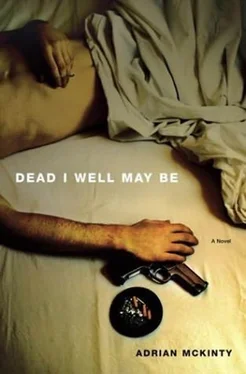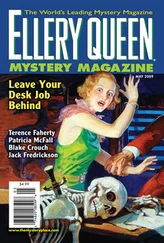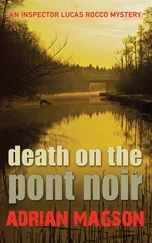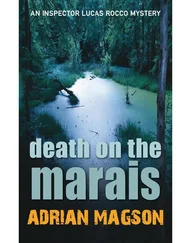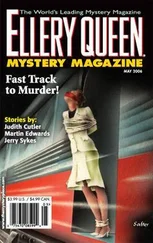I stayed in the motel for two nights. I spent all my money and cashed in my Greyhound ticket and ordered pizzas and drank beer. I rebandaged my foot and stood, agape, staring at my stump for a while, though fortunately I was pissed senseless at the time, otherwise I might have had a bit of a header. In any case, like I say, in two days I’d spent all my hard-earned cash. It was an idiotic and silly waste of resources, considering how Nyx’s weans had escaped me from the prison and the jungle and given me dough.
But that was it, of course. I wanted to get back, I wanted to see blood on walls and pooling under the bodies of gray men. I wanted to see widows’ tears. To hear screams and pleas for mercy. But I didn’t want to go back for precisely the same reasons.
I tried finding Hibernians organizations in Denver, but there was only one in the phone book. I called up and explained my case, but the guy practically laughed when I said I’d like to borrow some money. After that, I packed my shit and walked down Broadway and tried hitching at the on-ramp to the I-70. No one gave me a lift and coppers waved me off and had no time to listen to the adventures of Seamus McBride. I slept rough that night under a bridge near Cherry Creek. I drank the creek water and washed in it before I started hitching again. I went back up to the I-70 ramp and this time I again got lucky.
An hour later, a man in a camper van was pulling up to the on-ramp and saw me and our eyes locked for a second and he jerked his thumb back for me to get in.
It was a huge white-and-yellow Winnebago of the very latest fashion. I climbed up. The man was in his fifties, white hair, the sunken gray face of an actuary or undertaker. He told me his name was Peter Jenning, though not like the anchor, he said, because of the s (but I had never heard of the anchor and immediately, from all this nautical terminology, assumed that he was ex-navy).
I spun him Seamus’s sad story and he swallowed it, and I asked him about life on the ocean wave.
Well, Seamus, I was never in the armed services. Ear problems. But my son was in the Gulf War, not in the actual fighting, but he was a radar operator behind the lines. Reservist, got his medal, and don’t think it wasn’t dangerous, because it was.
I believe it. They kept firing those things. Those missiles, I said.
Scuds, he said, seething with the memory of it.
Yeah, very risky. I was in the British Army myself then, actually, but I wasn’t sent to the Gulf. Pity, really, I told him. Not mentioning, as I’ve already said, that at that time I was finishing out a minor prison sentence on Saint Helena, and that in itself was a class-A double fuckup too, because after I got back, my regiment was merged with another regiment and a lot of the new recruits were offered semigenerous packages to get out of the army, though not, of course, the fucking dishonorable dischargees.
You seem upset about it, he said.
I nodded absently.
But, son, that war screwed up. Listen to me. The ground war. Gulf War was all based on the Battle of Cannae, you know, flanking maneuver. Cannae was a big victory and so was the ground war, but did Hannibal win the war? Did we beat Saddam? No, we did not. Let me tell you: Vinse Hannibal, et non seppe , um, usar uh, poi. Ben la vittoriosa sua ventura . Read that, memorized it.
I nodded sagely and said, Ah yes, good point, excellent point. He smiled at me, clearly well pleased with himself.
You must have learned Latin in school in Ireland, huh, Seamus? Jesuits, right, thumped it into you, he suggested in a leer that seemed to convey his distaste for popery but approval of the beating.
We did, but, you know, I was never very g-
Hannibal was victorious and knew not how to use victory given him. That’s what that means. See my point? Bush and Powell, none of them used the victory to boot Saddam out of the country. Hannibal didn’t march on Rome, see what I’m saying?
I had no idea what he was saying, actually, but there are certain very strict duties imposed on a hitchhiker and one of those is to agree with whatever the driver says. I agreed and he proceeded to break down other errors in the president’s strategy.
They’re going to have to go in again, you mark my words, son. You remember Cato?
Yeah, he was always attacking Inspector Clouseau in the Pink Panther mov-
Carthago delenda est , that’s what Cato proclaimed, Cathage must be destroyed. You’ll see, we’ll go after Iraq again, Mr. Jenning said, and he outlined how we would win the war and further explained how every engagement in every war since 1860 could have been prosecuted more successfully. It didn’t come as much of a surprise when Mr. Jenning told me that he was a bit of a history buff. He had been in sales for forty years and that wasn’t a shock either, considering that he could talk the arse off an octopus. He had ended up, before retirement, as a regional marketing VP with the Kentucky Fried people. I had assumed that all the restaurants were franchises and wondered what they needed a regional marketing VP for, but Mr. Jenning had laughed at my naive appreciation of the ways of the world and further explained his role in the great corporate machine with endless and excruciating detail.
It was, however, my luck that Mr. Jenning was driving all the way to Vermont to see the fall colors, and he said he would swing by New York City and leave me off if I wanted. I did so want, and a few days listening to his yammering seemed a small price to pay. He explained Livy, Clausewitz, and Bismarck and, given encouragement, expanded further upon his theories of the universe. He was a widower but didn’t seem to miss his wife that much, and once in his sleep in the big bunk of the Winnebago he said, Serves you right, you old hag, which elicited a few theories of my own.
He asked a couple of times if I could pay for the gas but I emptied out my pockets and I suppose it convinced him. He didn’t let me do any of the driving, but I entertained him with made-up stories of Ireland. He especially enjoyed salty tales that involved women of loose virtue, and I had a few of those that weren’t so far from the truth.
When we arrived at the George Washington Bridge, it was raining and cold and night. I thanked him much and he let me off and headed up the Palisades to cross the Hudson at some other point.
I walked over the GWB in the drizzly dark. There’s no toll for pedestrians, thank Christ, for I had only a dollar and fifty-seven cents that I had husbanded carefully, and with that I took the A train to 125th Street. I came out in familiar old Harlem again. It was two A.M. and sleeting and such people as there were around gave me the cold shoulder. I walked with my crutch along 125th and turned up the hill on Amsterdam.
I found our building. The front door had been conveniently jemmied again. I walked down into the basement and rang Ratko’s bell. I rang for a long time and eventually there was much swearing in Serbo-Croat and he opened the door holding a lead pipe.
I need a place for a couple of days, I said. Ratko looked at me in astonishment for a second and then helped me through the door.
The basement stair was steep.
Each step down was agonizing but I enjoyed the pain. I had made it, I had fucking made it, and every torture now I engraved in memory, another torment notarized and ultimately to be paid for soon in the currency of fear.
9: THE CORNER OF MALCOLM X AND MARTIN LUTHER KING
Those first few days back, it was as if I were an astronaut exploring a city on the planet Mars. The people were not human. They were alien creatures sniffing the cold air and muttering and, in sinister fashion, disappearing down into the earth beneath me to catch clattering, spark-spewing electric cars. Shopping, talking, hauling little versions of themselves to school. I watched from shadows, hoping they wouldn’t see that I was a stranger, a being from another world. And I was afraid at any moment that one of them would cry out the usual words: Uitlander, Teague, Jude, Leper. Or no, it would be something that they would understand and I would not, for now even their language puzzled me. Their manner, not hostility exactly, but indifference. The people moving with their long arms and their straight backs, and fast, since for them the outside was merely a place between work and home. These weren’t all the populace, of course. There were others who lived there in the parks and streets; you could see them all the way from Mount Morris to Morningside and Riverside, shuffling, aware of me, hiding too, rag people. We would pass and exchange signs in secret; they could see that I also was adrift, apart. We conspired in silence and walked between greens and churches from 125th Street all the way up to the Cathedral of Saint John. Most of the time, I kept it together and I walked, came back to Ratko’s, ate and slept.
Читать дальше
